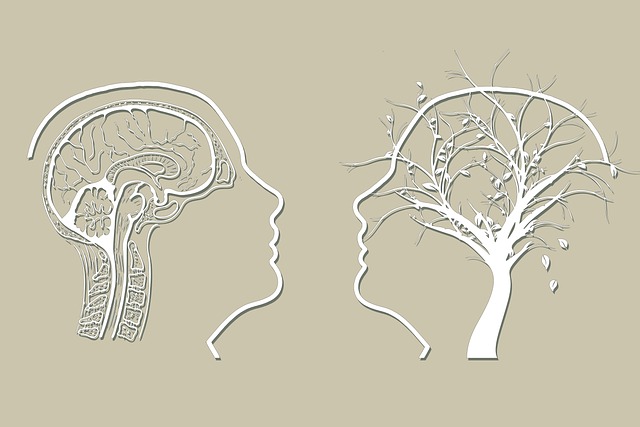Mood regulation is a multifaceted process influenced by emotions, thoughts, past experiences, genetics, and current circumstances. Superior French Speaking Therapy offers a unique approach using language's power to shape perceptions, emphasizing emotional intelligence through mindfulness meditation, conflict resolution, CBT, and coping skills development. This therapy helps individuals gain control over emotional responses, reduce negative thought patterns, manage stress, and improve overall well-being, especially for depression or anxiety. Integrating mindfulness with Superior French Speaking Therapy promotes trauma healing, while exposure therapy combines with social skills training to build confidence and emotional regulation. A holistic approach including physical activity, balanced diet, quality sleep, and social connections enhances resilience through coping skills development for equanimity in navigating life's challenges.
Mood regulation strategies are essential tools in navigating life’s ups and downs. This comprehensive guide explores various techniques designed to help individuals gain control over their emotions, fostering mental well-being. We delve into the intricate process of understanding mood regulation, highlighting the power of Cognitive Behavioral Therapy (CBT) for superior French speaking individuals seeking emotional balance. Additionally, we examine mindfulness practices, exposure therapy, and lifestyle adjustments for a holistic approach to achieving stable moods.
- Understanding Mood Regulation: Unraveling the Complex Mind
- The Role of Cognitive Behavioral Therapy (CBT) in Superior French Speaking
- Mindfulness and Meditation: Calming the Stormy Sea of Emotions
- Exposure Therapy: Confronting Fears to Master Mood Control
- Lifestyle Adjustments for a Balanced Mood: A Holistic Approach
Understanding Mood Regulation: Unraveling the Complex Mind

Understanding Mood regulation involves delving into the complex workings of the mind, where emotions and thoughts intertwine to shape our overall well-being. The human psyche is a intricate labyrinth, with various factors influencing our emotional states, from past experiences and genetics to current circumstances and interactions. Superior French speaking therapy, for instance, offers a unique approach to navigating this landscape, as language itself plays a profound role in shaping our perceptions and responses.
Emotional intelligence, a key component of superior French speaking therapy, equips individuals with the skills to recognize, understand, and manage their emotions effectively. This includes practicing self-care practices such as mindfulness meditation and engaging in conflict resolution techniques that foster healthy communication patterns. By addressing these aspects holistically, one can gain greater control over their emotional responses, leading to more balanced and regulated moods.
The Role of Cognitive Behavioral Therapy (CBT) in Superior French Speaking

Cognitive Behavioral Therapy (CBT) has proven to be a highly effective approach for individuals seeking to improve their mood regulation and overall well-being, especially in the context of Superior French Speaking Therapy. CBT focuses on identifying and changing negative thought patterns and behaviors that contribute to emotional distress. This therapy is particularly beneficial for those dealing with mental illnesses such as depression or anxiety, which often involve distorted thinking processes. By challenging these unhelpful thoughts and replacing them with more realistic and positive ones, CBT enables clients to gain a greater sense of control over their emotions.
In the Superior French Speaking Therapy setting, CBT incorporates cultural sensitivity in mental healthcare practice, ensuring that treatment aligns with the individual’s cultural background and beliefs. This tailored approach is essential for fostering trust and engagement among patients from diverse linguistic and cultural backgrounds. Moreover, it contributes to Coping Skills Development by teaching effective strategies to manage stress and emotional challenges, ultimately reducing symptoms associated with mental illness. Additionally, CBT plays a vital role in Mental Illness Stigma Reduction Efforts by promoting understanding and self-acceptance, which can lead to improved treatment adherence and overall recovery outcomes.
Mindfulness and Meditation: Calming the Stormy Sea of Emotions

Mindfulness and meditation practices have emerged as powerful tools for regulating emotions, offering a sanctuary from the stormy sea of feelings that can sometimes overwhelm us. This ancient technique involves training your attention to be present in the moment, observing thoughts and emotions without judgment. By cultivating this awareness, individuals can learn to navigate their emotional landscape more effectively.
Engaging in regular mindfulness exercises, such as focused breathing or body scans, allows for a deeper connection with one’s inner self. This process fosters a sense of calm and composure, enabling better coping mechanisms when faced with intense emotions. Moreover, integrating mindfulness into daily routines can enhance overall well-being and promote positive thinking, as it encourages individuals to embrace the present moment rather than getting caught up in past traumas or future anxieties. For those seeking comprehensive trauma support services, combining mindfulness with Superior French-speaking therapy can offer a culturally sensitive approach to healing.
Exposure Therapy: Confronting Fears to Master Mood Control

Exposure therapy is a powerful technique within the realm of mental health treatment, offering individuals a way to master their mood control by confronting fears head-on. This superior French speaking therapy involves gradually and safely exposing oneself to stressful or anxiety-inducing situations, allowing them to learn new coping strategies and challenge negative thoughts. By facing their fears in a controlled environment, individuals can gain a deeper understanding of their triggers and develop more adaptive behaviors.
This approach is particularly beneficial for those struggling with conditions such as phobias, obsessive-compulsive disorder (OCD), or post-traumatic stress disorder (PTSD). Social skills training often accompanies exposure therapy, empowering individuals to navigate social interactions with enhanced confidence and improved emotional regulation. The mental wellness benefits extend beyond the therapy session, as clients develop resilience and a deeper sense of self-control, enabling them to face life’s challenges with greater equanimity.
Lifestyle Adjustments for a Balanced Mood: A Holistic Approach

Maintaining a balanced mood is not just about managing emotions; it involves a holistic approach to overall well-being. Lifestyle adjustments play a significant role in regulating one’s mood, and adopting healthier habits can be immensely beneficial. This includes incorporating regular physical activity, which has been proven to boost serotonin levels and reduce stress. A balanced diet rich in essential nutrients supports brain health and can positively impact emotional stability. Adequate sleep is another cornerstone; prioritizing quality rest allows the body and mind to rejuvenate, promoting better mood regulation.
Additionally, cultivating a sense of community and social connections can significantly enhance mental resilience. Engaging in activities that foster cultural sensitivity and understanding, such as participating in Superior French-speaking therapy, offers unique benefits. This approach not only provides an effective means of stress management but also allows individuals to tap into the therapeutic potential of language and cultural expression. Developing coping skills through mindfulness practices, meditation, or journaling further empowers individuals to navigate life’s challenges with greater equanimity.
In conclusion, mood regulation strategies offer a multifaceted approach to managing and improving emotional well-being. From cognitive behavioral therapy for superior French speaking individuals to mindfulness practices, each method provides unique tools to navigate and control one’s mood. By understanding the complex interplay of thoughts and emotions, as discussed in “Understanding Mood Regulation: Unraveling the Complex Mind,” individuals can harness the power of therapy, like CBT, to significantly enhance emotional resilience. Combining these evidence-based techniques with lifestyle adjustments ensures a holistic approach to achieving and maintaining balanced moods.














